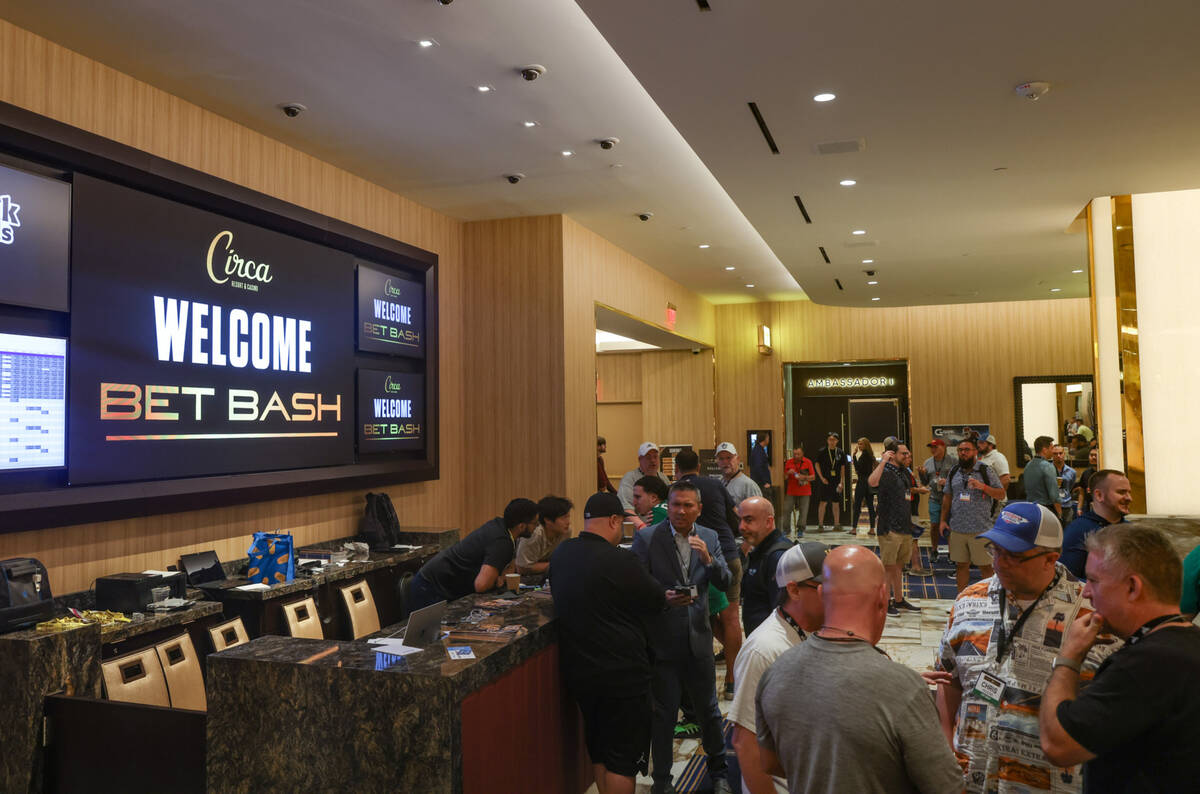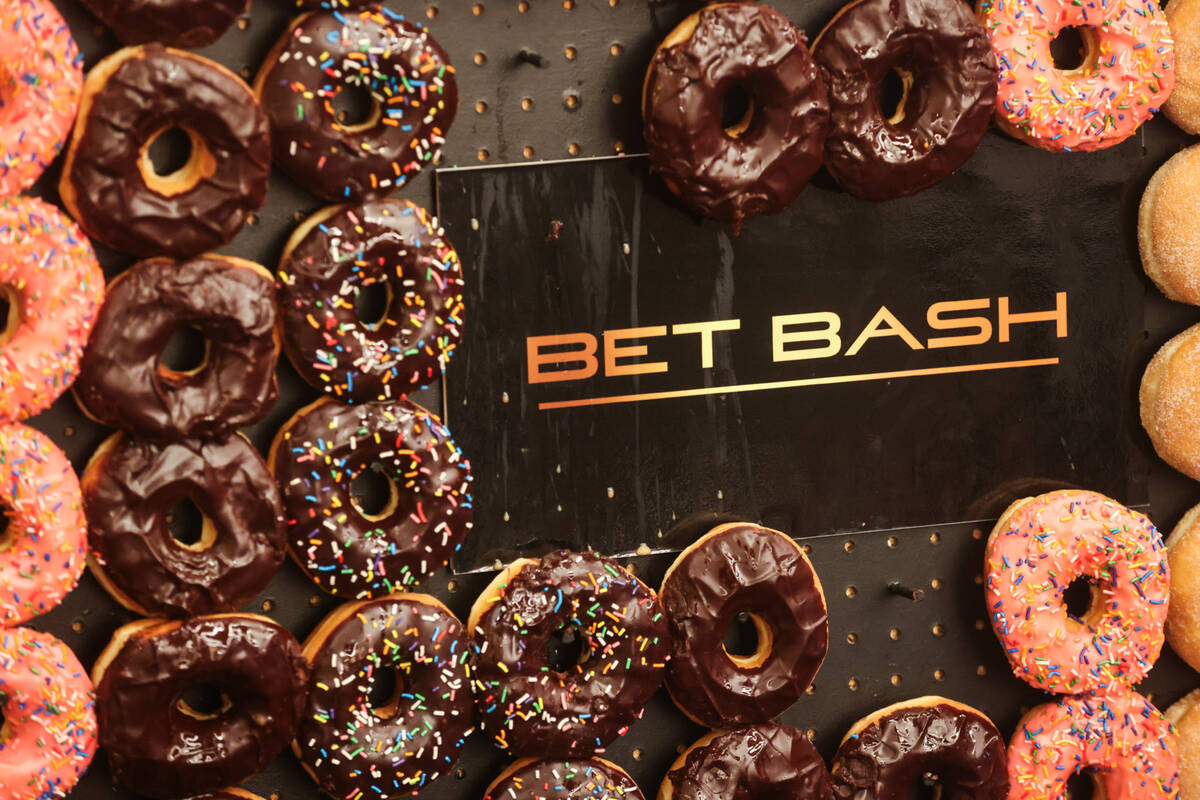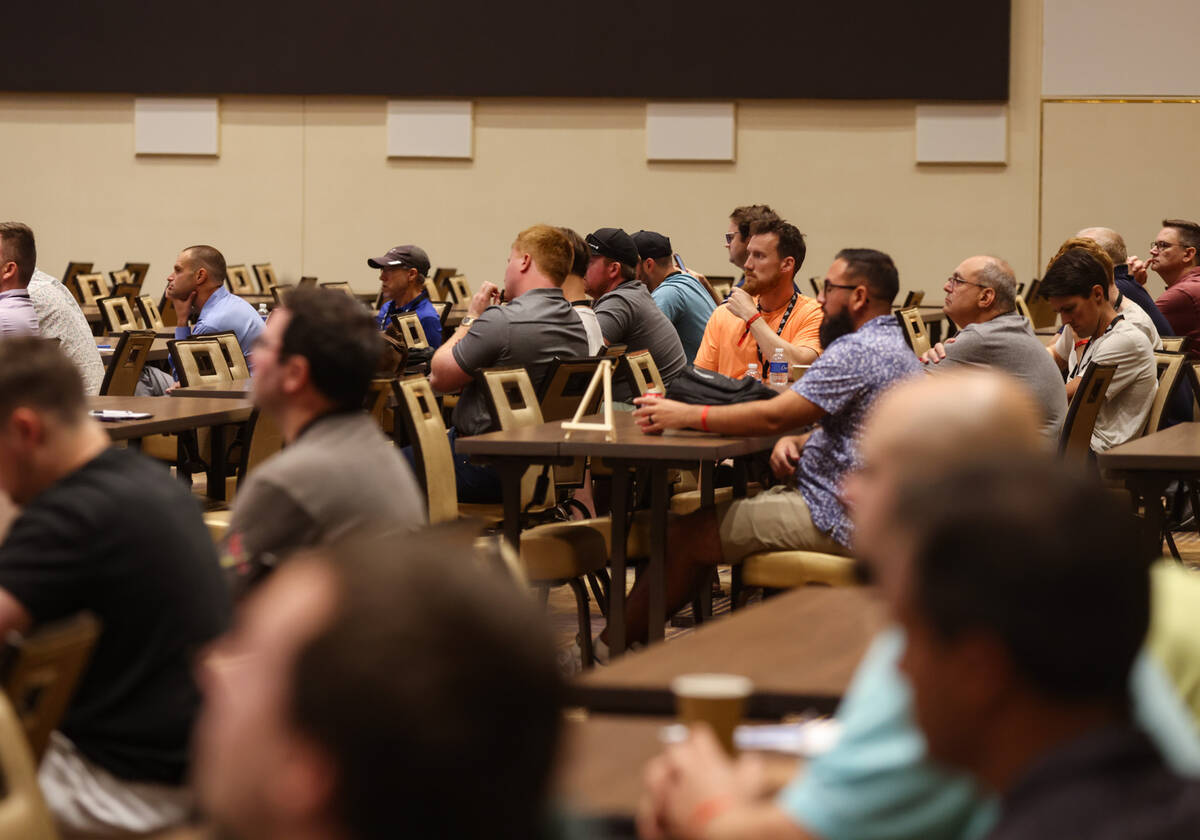DraftKings surcharge sparks concern about future of sports betting
DraftKings’ plan to add a surcharge to winning wagers in states with high sports betting tax rates was one of the main talking points at Bet Bash, a sports betting networking conference that took place this week at Circa.
DraftKings CEO Jason Robins announced Aug. 1 that, starting next year, the sportsbook giant, which doesn’t operate in Nevada, will deduct a 3.2 percent gaming tax surcharge from winning wagers in Illinois, which recently raised taxes on sports betting from 15 percent to 40 percent.
That means a bettor who places a traditional straight bet of $11 to win $10 would make only $9.68 under the plan, which was panned by pro bettors and bookmakers alike at Bet Bash.
“If any living human bets in a place where DraftKings is taking 3.2 percent off the winnings, you’re out of your (expletive) mind,” longtime professional bettor Alan “Boston” Dvorkis said during a seminar. “Don’t do it. You’re not going to win. I don’t care how good you are. There’s no living human that can overcome that.”
Bettors must win 52.4 percent of their wagers to turn a profit against a -110 price. Under the new surcharge, which equates to -114, gamblers would have to win 53.3 percent of their wagers to make a profit.
Going back offshore
“What they’re doing now, as far as what they’re charging people, they’re just going to drive people right back to the offshore (sportsbooks),” said Billy Walters, regarded as the most successful sports bettor of all time. “That’s all they’re going to do. The offshore world’s going to be bigger than ever.”
DraftKings plans to add surcharges in states with rates over 20 percent, which currently includes Illinois, Pennsylvania, Vermont and New York, which is at 51 percent. Nevada’s tax rate is 6.75 percent.
The high tax rates in other states, planned surcharges and other sportsbook practices, such as limiting winning bettors, have longtime Las Vegas bookmakers and bettors concerned about the future of the industry six years after the Supreme Court struck down the federal ban on sports betting.
“Everybody’s kind of lost this deal,” Walters said. “The politicians supposedly did this for the citizens. They wanted to give them a legal, lawful place to bet where there was no criminal element and taxes and jobs could be created, yet people were going to be treated fairly.
“What’s happened is they’ve allowed a monopoly to get created, and when you’ve got a monopoly, the only person that wins is the person that’s got the monopoly.”
FanDuel and DraftKings account for a combined 67 percent of the U.S. sportsbook market share, according to consulting firm Eilers & Krejcik Gaming.
‘The Nevada way’
South Point sportsbook director Chris Andrews and Gaughan Gaming sportsbook director Vinny Magliulo spoke in separate seminars about how the traditional Nevada model of bookmaking compares to the rest of the country.
“The bettor and bookmaker relationship should be one of mutual respect. It should not be adversarial,” Magliulo said. “And if a bettor is successful, then you tip your cap and you pay him. If customers don’t win sometimes, you’re not going to have any business.
“Don’t feel bad for the bookmaker. Nobody listens when the bookmaker cries, including the bookmaker’s grandmother, because she might be on the other side anyway.”
After sports betting was legalized across the country, Andrews took umbrage at the assertion by some foreign operators that the Nevada model of bookmaking was outdated and that Nevada books’ average hold, or win percentage — which has averaged 5.77 percent the last six years — should be closer to 10 percent.
“I like the Nevada way. We deal a very fair number,” he said. “They’re trying to tell us Nevada kind of doesn’t know what we’re doing. … I remember one guy saying the Nevada model is not sustainable. Well, I’ve been doing this since the ’70s. That’s six decades.”
Walters said it’s largely up to state gaming regulators to keep operators in check.
“If they don’t do something to step in on behalf of the betting public, this thing here is headed for a bad ending,” he said. “What worries me is the way the general customer is being treated by these sportsbook operators. But they can’t do these things if regulators don’t allow them to do it.
“If you’ve got a business, you can run it any way you want to. But these are privileged licenses. There’s a big difference. And if you don’t believe it, just ask the regulators in Nevada and ask the casinos there. They tell them every day what they can do and can’t do.”
Contact reporter Todd Dewey at tdewey@reviewjournal.com. Follow @tdewey33 on X.




















